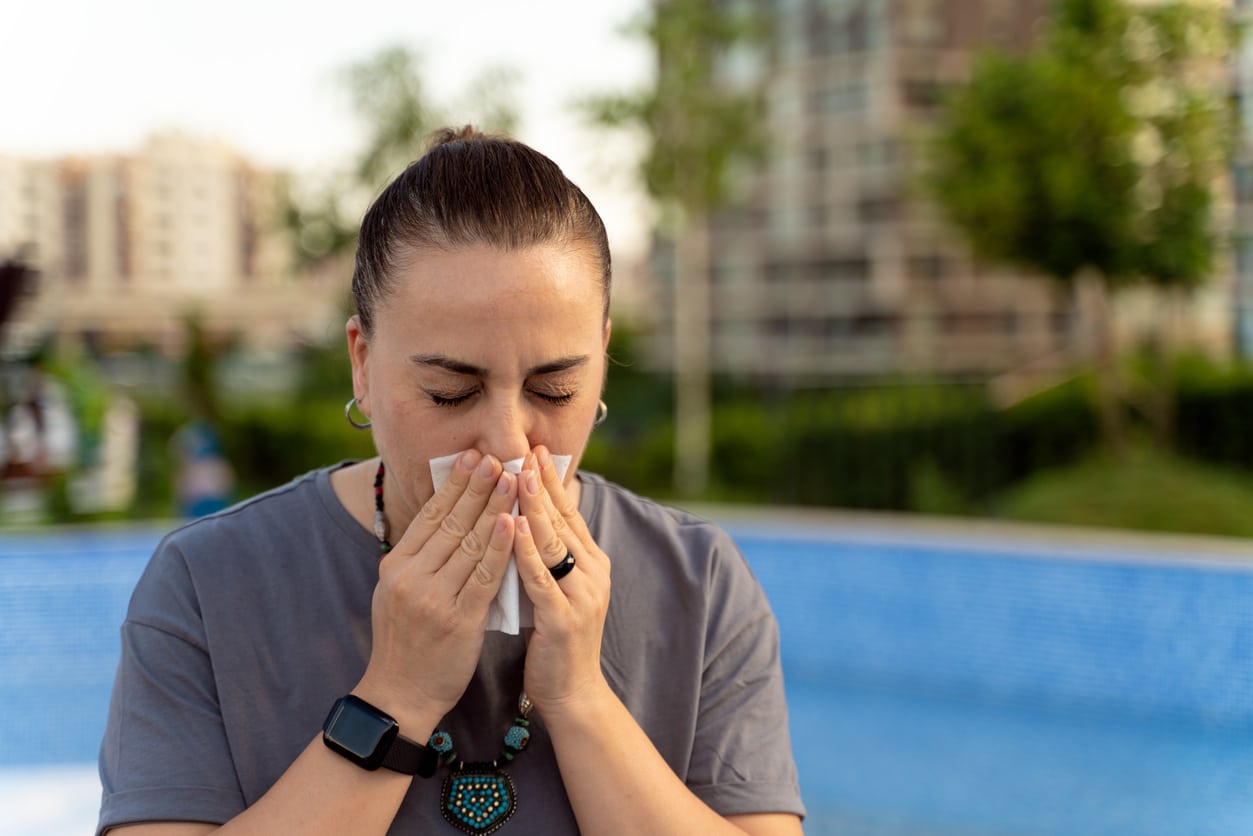As the seasons change and pollen fills the air, many people struggle with the familiar symptoms of allergies. While sneezing, congestion and itchy eyes are common signs, allergies can also affect your energy levels.

Understanding Environmental Allergies
Environmental allergies, also known as allergic rhinitis or hay fever, occur when the immune system overreacts to substances like pollen, dust mites, mold or pet dander. These allergens trigger the release of histamines and other inflammatory chemicals, causing symptoms that can affect various parts of the body.
Symptoms of Environmental Allergies
Each year, millions worldwide suffer from environmental allergies, with over 100 million affected in the U.S. alone. Symptoms can include:
- Sneezing
- Runny or stuffy nose
- Itchy or watery eyes
- Scratchy throat
- Coughing
- Fatigue
- Headaches
- Difficulty sleeping (due to nasal congestion or post-nasal drip)
The Link Between Allergies and Energy Levels
While the physical symptoms of allergies are well-known, their impact on energy levels is often overlooked. Here’s how allergies can affect your energy:
- Fatigue: Persistent allergy symptoms can be exhausting, both physically and mentally. Chronic congestion, sinus pressure and disrupted sleep can leave you feeling fatigued and lethargic throughout the day.
- Decreased motivation: Battling allergies can make even simple tasks feel daunting. The constant discomfort and congestion may reduce your motivation and enthusiasm, making it challenging to handle daily responsibilities or enjoy activities like walks through Frisco Commons Park.
- Impaired cognitive function: Ongoing congestion and managing allergies can lead to brain fog, making it difficult to concentrate.
Managing Allergy Symptoms to Boost Energy
Fortunately, there are steps you can take to alleviate allergy symptoms and regain your energy:
- Identify and avoid triggers: Pay attention to what triggers your allergies, such as pollen, dust or pet dander, and take steps to minimize exposure. Use air purifiers, keep windows closed during high pollen seasons and regularly clean your living space.
- Medications: Over-the-counter or prescription allergy medications, such as antihistamines, nasal corticosteroids or decongestants, can help alleviate symptoms and improve energy levels.
- Allergy immunotherapy: For severe or persistent allergies, allergy shots or sublingual immunotherapy (allergy drops) may be recommended to desensitize your immune system to specific allergens and reduce symptoms over time.
Understanding the connection between allergies and fatigue empowers you to take proactive steps to manage your symptoms and reclaim your vitality.
To learn more about how allergies may be impacting your quality of life, contact Collin County ENT to schedule an appointment today.